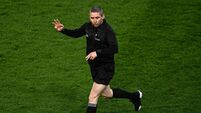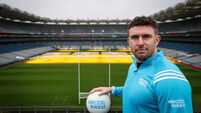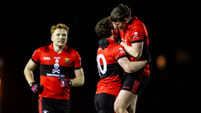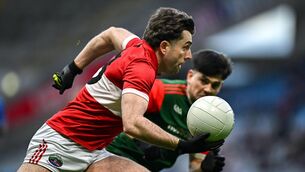Legion of madness
JOHNNY CULLOTY is soloing down memory lane, through the decades of Kerry football with incredible ease of thought and explanation.
Though he barely looks old enough to remember the 1955 All-Ireland final, that is where his story begins. It is a story that will incorporate four more All-Ireland titles, including the captaincy of the side in 1969 when Kerry beat Offaly. There are 12 Munster senior medals in the collection with eight in a row from 1958-1965. Throw in the National Leagues and Railway Cups, a spell in management and a impressive career as in inter-county hurler (winning an All-Ireland medal with the Kerry Juniors, in 1961) and you begin to realise the importance of the GAA to Culloty. And vice versa.














